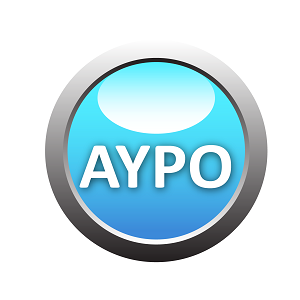Kansas 3 Hour NFIP Review (2024)
-
3 Hour Course
- $17.00
This 3-hour course for property and casualty insurance producers meets the continuing education requirements for those wishing to sell flood insurance in this state. The course includes important flood insurance material including the National Flood Insurance Program (NFIP) and changes, community participation requirements, premium rating including Risk Rating 2.0, coastal barriers, flood maps and zones, policies and products that are available, including applicable definitions. Moving on, the course details preferred policies, coverage provided, exclusions and conditions. Increased cost of compliance, general rules, covered claims, loss settlements, binders, group flood coverage, types of buildings, ICC claims, the FIRA handbook, agent resources, write-your-own coverage compared to the plan through FEMA, and much more.
Specifically, the course explores the following:
- The National Flood Insurance Program, its background, history, write-your-own policies and the role of private insurance in flood coverage.
- The Biggert-Waters Flood Insurance Reform Act.
- Recent changes to the NFIP, including the Homeowner Flood Insurance Affordability Act, Risk Rating 2.0 (new), premiums for subsidized policies, grandfathering, mapping, renewing the NFIP, community participation and non-participation, and the framework of the NFIP.
- Emergency and regular programs, including definitions, rating systems, eligible and ineligible buildings, coastal barrier resources systems and protected areas.
- Who needs flood insurance, mandatory purchase in high-risk flood zones, FIRM Maps, moderate and low flood risk zones, flood compared to disaster assistance, and flood insurance required for federal disaster relief.
- Zone determinations, boundary and rate maps, pre- and post-firm definitions, base flood determinations.
- Policies and available products, including important definitions, policy forms and types of covered buildings and structures, condominium and association coverage, preferred risk policies, damages not covered, single-peril policies, apportionment, mudslides and mudflows, other structures on the premises, improvements and betterments coverage, loss avoidance measures, additional coverages, increased cost of compliance (ICC) coverage.
- General rules, statutory coverage limits, group flood insurance coverage (new), deductibles, determining values, replacement cost versus actual cash value, coinsurance penalties, no binders, separate coverages, waiting period/effective date of policy, policy term and grace periods, cancellation.
- Information needed for rating, what zone is the property located in, elevation certificates, how to determine the premium, repetitive claims, claims handling processes and adjustment, proof of loss, appeals process.
- Flood Insurance Reform Act of 2004 (FIRA), point-of-sale and renewal responsibilities, notification of purchased coverages, acknowledgment forms, claims handbook.
- Agent resources, including the write-your-own policies, private insurance, excess flood insurance, FEMA website information and the flood insurance manual, additional training opportunities, the future of flood, conclusion.
There is a 25-question final exam that must be passed in order to receive certification for the course.
Show Course ID: 1
- Course ID(s): 6000170311
- Approved By: Kansas Insurance Department
Instructor Bio

Gary Sternberg is a veteran of insurance training, having been in the insurance education industry for over 25 years. He is a highly focused, licensed professional with top-level skills in prelicense and continuing education content authorship and training. He is well-versed in compliance and has extensive experience with state and federal regulatory laws and rules. Gary brings to At Your Pace Online students his excellent teaching, writing, and presentation skills with the ability to turn the complex into learnable “normal” person material. Most importantly, Gary has a passion for insurance education and seeing students successfully navigate the licensing process.

